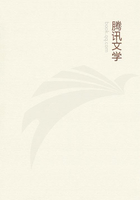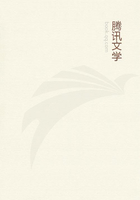And if again it can never be a duty to obey the instinct, because neither its direction nor the desire of sympathy which impels us to follow it can ever be obligatory, it can none the more be a duty to obey the rules which are founded upon the instinct. The authority of the moral rules or principles of conduct stands or falls with the authority of the instinct; for if the latter can enforce obligation to a certain degree, it can enforce it in all degrees; and if it cannot enforce it to this degree, then it cannot in any. It is therefore Jouffroy's conclusion, that "there is not, in the system of Smith, any such thing as a moral law; and it is incompetent to explain our ideas of duty, of right, and of all other such ideas as imply the fact of obligation." (11)The question then is, How far is such criticism well-founded? How far is it relevant to the subject-matter of Adam Smith's treatise?
Adam Smith might have replied to Jouffroy's objections by asking whether, putting aside the question of the soundness of his theory of the origin of moral approbation, any theory that accounted for the approbation did not ipso facto account for the obligation. He might have said that, if he showed why one course of conduct was regarded as good and another as bad, he implicitly showed why one course was felt to be right and the other to be wrongwhy it was felt, that one course ought to be followed and the other course ought to be avoided. For the feeling of authority and obligation is involved in the fact of approbation. As it has been well put by Brown, "The very conceptions of the rectitude, the obligation, the approvableness (of certain actions) are involved in the feeling of the approbation itself.
It is impossible for us to have the feeling, and not to have these.....
To know that we should feel ourselves unworthy of self-esteem, and objects rather of self-abhorrence, if we did not act in a certain manner, is to feel the moral obligation to act in a certain manner, as it is to feel the moral rectitude of the action itself. We are so constituted that it is impossible for us, in certain circumstances, not to have this feeling;and having the feeling, we must have the notions of virtue, obligation, merit." (12)Moreover, Adam Smith expressly pointed out that the difference between moral approbation and approbation of all other kinds lay in the impossibility of our being as indifferent about conduct as about other things, because conduct, either directly or by our imagination, affected ourselves; so that the additional strength thus conferred on the feeling of moral approbation was quite sufficient to account for that feeling of the imperative and obligatory force which inculcates obedience to moral rules. If there is no authority in an instinct per se , it may nevertheless be so constituted and may so operate that the strictest sense of duty may ultimately grow from it and upon it. The obligation is none the less real because it can be accounted for; nor are the claims of duty any the less substantial because they are capable of being traced to so humble a beginning as an instinctive desire for the sympathy of our fellows.
It may therefore be said, on behalf of Adam Smith, that it is not to weaken the basis of morality, nor the authority of conscience, to trace either of them to their sources in sentiments of sympathy, originally influenced by pleasure and pain. The obligatory nature of moral rules remains a fact, which no theory of their origin can alter or modify; just as benevolent affections remain facts of our moral being, irrespective of their possible superstructure on instincts of self-interest. If con- science is explicable as a kind of generalization or summary of moral sympathies, formed by the observation of the distribution of praise or blame in a number of particular instances and by personal experience of many years, its influence need be none the less great nor its control any the less authoritative than if it were proved to demonstration to be a primary principle of our moral consciousness.
It is also necessary to remember that Adam Smith carefully restricted the feeling of obligation to the one single virtue of justice, and throughout his treatise avoided generally the use of words which, like "right" and "wrong," seem to suggest the idea of obligation. By the use of the words "proper" and "improper," or "meritorious," as applied to sentiments and conduct, he seems to have wished to convey the idea that he did regard morality as relative to time, place, and circumstance, as to a certain extent due to custom and convention, and not as absolute, eternal, or immutable.
Properly speaking, justice, or the abstinence from injury to others, was, he held, the only virtue which, as men had a right to exact it from us, it was our duty to practise towards them. The consciousness that force might be employed to make us act according to the rules of justice, but not according to the rules of any other virtues, such as friendship, charity, or generosity, was the source of the stricter obligation felt by us in reference to the virtue of justice. "We feel ourselves," he said, "to be in a peculiar manner tied, bound, and obliged to the observation of justice," whilst the practice of the other virtues "seems to be left in some measure to our own choice." "In the practice of the other virtues, our conduct should rather be directed by a certain kind of propriety, by a certain taste for a particular tenor of conduct, than by any regard to a precise rule or maxim;" but it is otherwise with regard to justice, all the rules of which are precise, definite, and certain, and alone admit of no exception.















